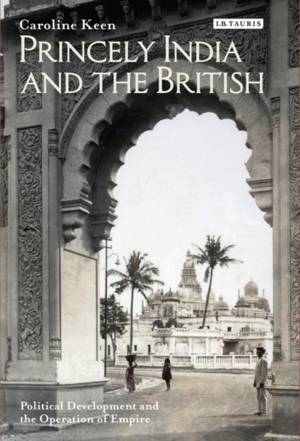
- Retrait gratuit dans votre magasin Club
- 7.000.000 titres dans notre catalogue
- Payer en toute sécurité
- Toujours un magasin près de chez vous
- Retrait gratuit dans votre magasin Club
- 7.000.0000 titres dans notre catalogue
- Payer en toute sécurité
- Toujours un magasin près de chez vous
296,95 €
+ 593 points
Format
Description
In the latter part of the nineteenth century, the royal status of Indian princes was under threat in what became a critical period of transition from traditional to imperial rule.Weakened by treaties concluded with the British earlier in the century, the rulers were subject to a concentrated campaign by British officials to turn palace life into a westernised construct of morality, rules and regulations.Young heirs to the throne were exposed to a western education to encourage their enthusiasm for changes in the princely environment.At the same time bureaucracies constructed on the British Indian model were introduced to promote'good government'.In many cases, royal practice and authority were sacrificed in the urgency to install efficient and accountable methods of administration.Adult rulers were frequently sidelined in the intricacies of state politics and the traditional princely power base was steadily eroded. Using the framework of a princely life-cycle, this book evaluates British policy towards the princes during the period 1858-1909.
Within this framework Caroline Keen examines disputed successions to Indian thrones, the reaction of young rulers to a western education, princely marriages and the empowerment of royal women, the administration of states, and efforts to alter court hierarchy and ritual to conform to strict British bureaucratic guidelines.A recurring theme is the frequently incompatible relationship between British officials posted to the states and their superiors within the Government of India. Rarely examined archival material is used to provide a detailed analysis of policy-making which deals with British procedure at all levels of officialdom. For scholars and researchers of South Asian and British imperial history this book casts new light upon a highly significant phase of imperial development and makes a major contribution to the understanding of the operation of indirect rule under the Raj.
Within this framework Caroline Keen examines disputed successions to Indian thrones, the reaction of young rulers to a western education, princely marriages and the empowerment of royal women, the administration of states, and efforts to alter court hierarchy and ritual to conform to strict British bureaucratic guidelines.A recurring theme is the frequently incompatible relationship between British officials posted to the states and their superiors within the Government of India. Rarely examined archival material is used to provide a detailed analysis of policy-making which deals with British procedure at all levels of officialdom. For scholars and researchers of South Asian and British imperial history this book casts new light upon a highly significant phase of imperial development and makes a major contribution to the understanding of the operation of indirect rule under the Raj.
Spécifications
Parties prenantes
- Auteur(s) :
- Editeur:
Contenu
- Nombre de pages :
- 296
- Langue:
- Anglais
- Collection :
Caractéristiques
- EAN:
- 9781848858787
- Date de parution :
- 05-09-12
- Format:
- Livre relié
- Format numérique:
- Ongenaaid / garenloos gebonden
- Dimensions :
- 145 mm x 216 mm
- Poids :
- 498 g

Les avis
Nous publions uniquement les avis qui respectent les conditions requises. Consultez nos conditions pour les avis.






